Top API Management Software Comparison
By Dante Holloway | Published: 2025-04-12 | Category: Api Management Software
About Api Management Software
API Management software provides tools for creating, publishing, securing, monitoring, and analyzing APIs across an organization. It facilitates the entire API lifecycle, enabling businesses to expose services securely and efficiently.
Scoring Criteria
- → Full Lifecycle Management
- → Security Features
- → Developer Portal
- → Analytics & Monitoring
- → Deployment Flexibility
- → Ease of Use
- → Pricing & Value
- → Community & Support
The Best Api Management Software
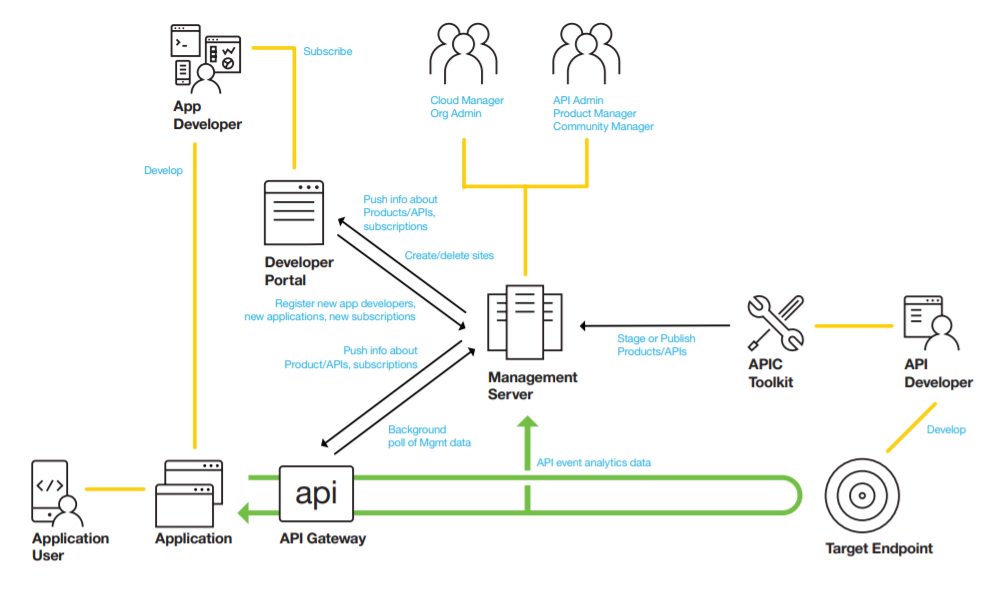 #10
#10
IBM API Connect
By IBM
An enterprise-grade API management solution designed for creating, securing, managing, and socializing APIs.
Platforms & Use Cases
Platforms: Cloud (IBM Cloud), On-premise, Hybrid, Multi-cloud
Best For: Enterprise API Strategy, Secure API Exposure, Microservices Governance, API Monetization
Key Features
- ✓Automated API Creation: Tools to rapidly create APIs from existing services.
- ✓Lifecycle Governance: Policies and controls for managing APIs through their lifecycle.
- ✓Security Gateway: Built on IBM DataPower Gateway for robust security enforcement.
- ✓Socialization Portal: Customizable portal for developers to discover and consume APIs.
Scorecard (Overall: 8.3 / 10.0)
Pricing
Lite (IBM Cloud)
Contact Vendor
- For testing and evaluation
- Limited capacity (50k calls/month)
Limitations: Not for production, Feature restrictions
Enterprise (IBM Cloud)
$100.00 / Per 100k Calls
- Pay-as-you-go pricing
- Full features
- Scalable
Limitations: Pricing based on volume
Reserved Instance (IBM Cloud)
$9999.00 / Monthly
- Dedicated capacity
- Predictable cost
Limitations: Contact Sales
On-Premise/Hybrid
$9999.00 / Annually
- Deploy on own infrastructure
- Full feature set
Limitations: Contact Sales
Pros
- + Strong enterprise focus and security (DataPower)
- + Comprehensive lifecycle management
- + Flexible deployment options
- + Good integration with IBM ecosystem
Cons
- - Can be complex
- - Higher cost potential
- - Interface can feel dated compared to some competitors
Verdict
"A robust choice for large enterprises, especially those already invested in the IBM ecosystem, needing strong security and governance features."
 #9
#9
WSO2 API Manager
By WSO2
A comprehensive open-source API management platform offering full lifecycle capabilities and integration features.
Platforms & Use Cases
Platforms: Cloud, On-premise, Hybrid, Kubernetes
Best For: Full Lifecycle API Management, Integration Projects, Open Source Deployments, Digital Transformation
Key Features
- ✓Open Source: Fully open-source under Apache 2.0 license.
- ✓Complete Lifecycle: Covers API creation, publishing, security, throttling, analytics.
- ✓Integration Capabilities: Part of a broader platform with ESB and Identity Management features.
- ✓Deployment Flexibility: Supports various deployment models including Kubernetes.
Scorecard (Overall: 8.3 / 10.0)
Pricing
Open Source
Contact Vendor
- Full platform functionality
- Community support
Limitations: Self-supported
Cloud
$9999.00 / Annually
- Managed service
- Dedicated instances
- Support
Limitations: Contact Sales
Support Subscription
$9999.00 / Annually
- Enterprise support
- Updates
- Patches for self-managed deployments
Limitations: Contact Sales
Pros
- + Fully open-source platform
- + Comprehensive feature set
- + Strong integration story
- + Flexible deployment options
Cons
- - Can be complex to set up and manage
- - Requires Java expertise
- - Performance tuning might be needed for high loads
Verdict
"A powerful, fully open-source option for organizations needing comprehensive API management and integration capabilities, particularly if comfortable with Java stack."
 #8
#8
Gravitee.io API Management
By GraviteeSource
An open-source, Java-based API management platform focused on event-driven architectures and flexible deployment.
Platforms & Use Cases
Platforms: Cloud, On-premise, Hybrid
Best For: Event-Driven APIs, Asynchronous APIs, Open Banking, Microservices Orchestration
Key Features
- ✓Event-Native: Strong support for managing asynchronous APIs (Kafka, MQTT, WebSockets, etc.).
- ✓Flexible Policy Engine: Extensible policy studio for security, transformation, and governance.
- ✓Access Management: Built-in identity and access management capabilities.
- ✓Alert Engine: Proactive monitoring and alerting on API performance and events.
Scorecard (Overall: 8.2 / 10.0)
Pricing
Community Edition (Open Source)
Contact Vendor
- API Gateway
- Management API
- Basic Portal
- Community support
Limitations: No official support, Lacks Enterprise features (e.g., Alert Engine, IAM)
Enterprise
$9999.00 / Annually
- Full feature set including IAM, Alert Engine
- Advanced policies
- Cockpit multi-environment orchestrator
- Professional support
Limitations: Contact Sales
Pros
- + Strong focus on event-driven and async APIs
- + Open-source core
- + Integrated Access Management
- + Flexible deployment options
- + Java-based platform
Cons
- - Smaller community than some larger players
- - Full potential unlocked in Enterprise version
- - Can have a steeper learning curve
Verdict
"A great fit for organizations heavily utilizing event-driven architectures and asynchronous APIs, offering powerful open-source foundations."
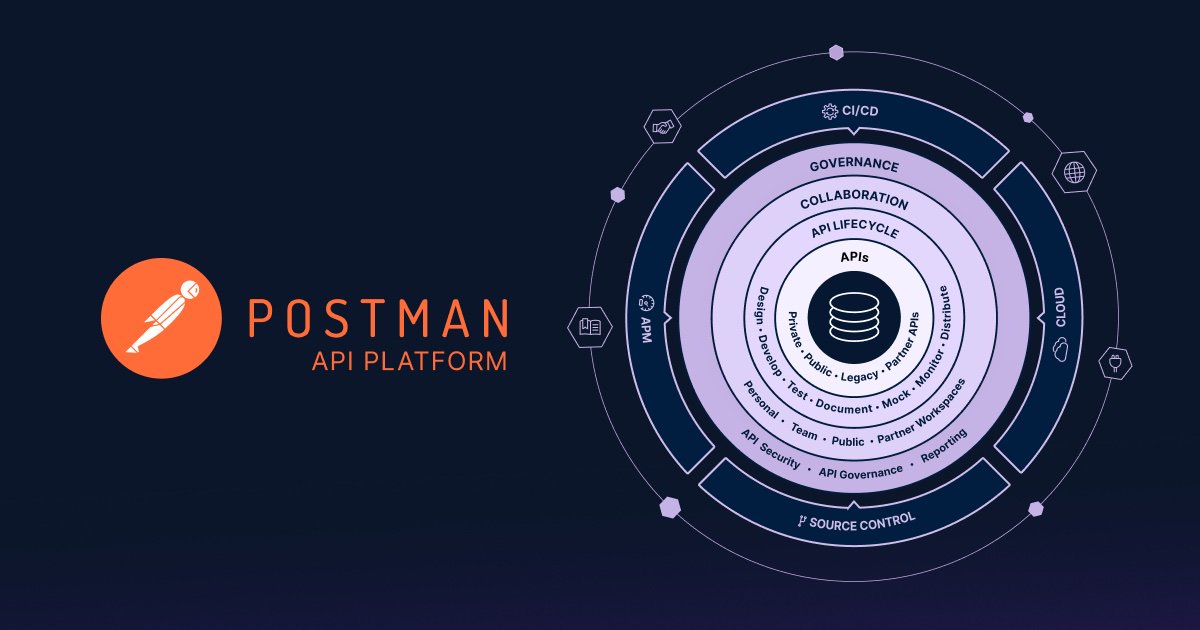 #7
#7
Postman API Platform
By Postman
Widely known for its API client, Postman has evolved into a collaborative platform for the entire API lifecycle.
Platforms & Use Cases
Platforms: Cloud, Desktop Client
Best For: API Design & Development, API Testing & Automation, Team Collaboration on APIs, API Documentation
Key Features
- ✓Collaborative Workspaces: Shared environments for teams to design, develop, and test APIs.
- ✓API Client: Industry-standard tool for sending requests and inspecting responses.
- ✓API Design & Mocking: Tools for designing API schemas (OpenAPI, RAML, GraphQL) and creating mock servers.
- ✓Automated Testing: Collection Runner and Newman (CLI) for CI/CD integration.
Scorecard (Overall: 8.1 / 10.0)
Pricing
Free
Contact Vendor
- API Client
- Basic collaboration (3 users)
- Mock servers (limited calls)
- Documentation (limited views)
Limitations: User limits, Usage restrictions
Basic
$14.00 / Monthly per User
- Increased collaboration
- More mock server calls
- More documentation views
- Collection Runner (limited runs)
Professional
$29.00 / Monthly per User
- Single Sign-On
- Advanced reporting
- Increased run limits
- Static IP testing
Enterprise
$99.00 / Monthly per User
- API Gateway integrations
- Advanced security
- Enterprise support
- Domain capture
Limitations: Minimum user count may apply
Pros
- + Excellent developer experience
- + Strong focus on collaboration
- + Widely adopted API client
- + Good for design, testing, and documentation
- + Generous free tier
Cons
- - Not a traditional API Gateway/Runtime focused solution
- - Security/policy enforcement features less mature than gateways
- - Analytics are more developer-focused
Verdict
"Superb platform for developer teams focusing on API design, testing, documentation, and collaboration, rather than runtime gateway enforcement."
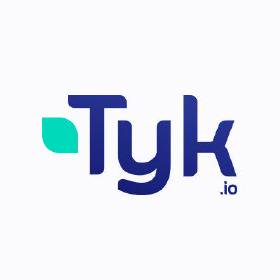 #6
#6
Tyk API Management
By Tyk Technologies
An open-source API gateway and management platform known for its performance, flexibility, and multiple deployment options.
Platforms & Use Cases
Platforms: Cloud, On-premise, Hybrid, Kubernetes
Best For: Open Source Adoption, Multi-Cloud Strategy, GraphQL Integration, Performance-Focused Gateway
Key Features
- ✓Open Source Gateway: Core gateway written in Go, available under MPL.
- ✓Multiple Deployment Models: Cloud, Self-Managed (On-prem/Private Cloud), Hybrid.
- ✓GraphQL Support: Native support for GraphQL APIs alongside REST and others.
- ✓Extensibility: Middleware scripting in various languages (JS, Python, Lua).
Scorecard (Overall: 8.3 / 10.0)
Pricing
Community Edition (Open Source)
Contact Vendor
- API Gateway
- Community support
Limitations: No Dashboard UI, No Developer Portal, Limited analytics
Cloud
$9999.00 / Annually
- Managed Gateway
- Dashboard UI
- Developer Portal
- Analytics
- Support
Limitations: Contact Sales
Self-Managed
$9999.00 / Annually
- Deploy on own infrastructure
- Full feature set
- Support
Limitations: Contact Sales
Pros
- + Strong open-source core
- + High performance (Go-based)
- + Flexible deployment options
- + Good GraphQL support
- + Extensible middleware
Cons
- - Full management features require paid versions
- - Smaller market share compared to giants
- - Learning curve for advanced configurations
Verdict
"Excellent choice for teams prioritizing open-source, Go-based performance, GraphQL, and flexible deployment across cloud and on-premise."
 #5
#5
Azure API Management
By Microsoft
A hybrid, multi-cloud management platform for APIs across all environments, part of the Azure ecosystem.
Platforms & Use Cases
Platforms: Cloud (Azure), Hybrid, Multi-cloud
Best For: Azure-centric Workloads, Hybrid Cloud Scenarios, Enterprise API Governance, Partner Ecosystem Enablement
Key Features
- ✓Hybrid & Multi-cloud Gateway: Manage APIs hosted on Azure, on-premises, or in other clouds.
- ✓Developer Portal: Highly customizable, open-source portal for API consumers.
- ✓Security & Policies: Authentication, authorization, rate limits, quotas, transformations.
- ✓Azure Integration: Connects with Azure Functions, Logic Apps, App Service, Azure AD, etc.
Scorecard (Overall: 8.6 / 10.0)
Pricing
Consumption
Contact Vendor
- Serverless gateway
- Auto-scaling
- Built-in high availability
Limitations: Limited features compared to dedicated tiers, 1M Free calls/month
Developer
$49.00 / Monthly
- For non-production use
- Most features available
Limitations: No SLA, Single node
Basic
$147.00 / Monthly
- Production ready
- SLA
- 2 units scale
Standard
$686.00 / Monthly
- Higher scale (4 units)
- VNET integration
Premium
$2795.00 / Monthly
- Highest scale
- Multi-region deployment
- Self-hosted gateway
Pros
- + Excellent integration with Azure services
- + Strong hybrid and multi-cloud capabilities
- + Feature-rich developer portal
- + Flexible pricing tiers including consumption
Cons
- - Best suited for Azure environments
- - Complexity increases with advanced features
- - Premium tier can be expensive
Verdict
"A strong contender, especially for organizations using Azure or requiring hybrid/multi-cloud API management with a robust developer portal."
 #4
#4
AWS API Gateway
By Amazon Web Services
A fully managed service for creating, publishing, maintaining, monitoring, and securing APIs at any scale within the AWS ecosystem.
Platforms & Use Cases
Platforms: Cloud (AWS)
Best For: Serverless Applications (Lambda integration), AWS-centric Architectures, Web & Mobile Backends, Securing AWS Services
Key Features
- ✓Deep AWS Integration: Seamlessly connects with Lambda, EC2, Kinesis, Step Functions, etc.
- ✓Multiple API Types: Supports RESTful APIs, WebSocket APIs, and HTTP APIs.
- ✓Security Controls: IAM integration, Cognito user pools, API keys, throttling, WAF integration.
- ✓Scalability & Performance: Managed service that scales automatically.
Scorecard (Overall: 8.2 / 10.0)
Pricing
Free Tier
Contact Vendor
- 1 million HTTP API calls
- 1 million REST API calls
- 1 million messages
- 750,000 connection minutes (WebSocket) for 12 months
Limitations: Limited duration for some free tier items
Pay-as-you-go (HTTP APIs)
$1.00 / Per Million Calls
- Lower cost API type
Limitations: Fewer features than REST APIs
Pay-as-you-go (REST APIs)
$3.50 / Per Million Calls
- Full-featured REST APIs
Limitations: Higher cost than HTTP APIs
Pay-as-you-go (WebSocket APIs)
$1.00 / Per Million Messages
- Real-time communication
Limitations: Connection duration charges apply
Pros
- + Excellent integration with AWS services
- + Pay-as-you-go pricing model
- + Highly scalable and reliable
- + Good security features
Cons
- - Primarily locked into the AWS ecosystem
- - Developer portal features are basic compared to dedicated platforms
- - Configuration can become complex
Verdict
"The default choice for teams building applications heavily on AWS, especially serverless architectures, offering cost-effectiveness and deep integration."
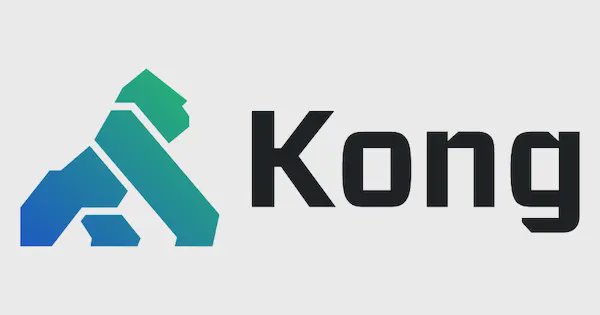 #3
#3
Kong Gateway
By Kong Inc.
A popular open-source API gateway focused on performance and extensibility, with an enterprise offering.
Platforms & Use Cases
Platforms: Cloud, On-premise, Hybrid, Kubernetes-native
Best For: Microservices Management, Cloud-Native Architectures, High-Performance Gateway Needs, Extensibility through Plugins
Key Features
- ✓High Performance Gateway: Built on Nginx, known for low latency and scalability.
- ✓Plugin Architecture: Extensible via Lua plugins for custom functionality (authentication, logging, transformations).
- ✓Declarative Configuration: Manage configuration as code, suitable for GitOps.
- ✓Service Mesh Integration: Integrates with Kong Mesh for full service connectivity.
Scorecard (Overall: 8.5 / 10.0)
Pricing
Open Source
Contact Vendor
- Core Gateway
- Plugins
- Community support
Limitations: No official support, Lacks Enterprise features
Kong Konnect (Free)
Contact Vendor
- Cloud control plane
- Limited runtime instances
- Core gateway features
Limitations: Usage limits
Kong Konnect (Enterprise)
$9999.00 / Annually
- Enterprise Gateway
- Full lifecycle management
- Developer Portal
- Analytics
- Support
Limitations: Contact Sales
Pros
- + Excellent performance
- + Highly extensible via plugins
- + Strong open-source community
- + Flexible deployment options
- + Good Kubernetes integration
Cons
- - Full lifecycle features mainly in Enterprise version
- - Management UI primarily in paid tiers
- - Can require Nginx/Lua expertise for deep customization
Verdict
"A top choice for performance-critical applications, microservices, and teams comfortable with open-source or seeking extensive customization via plugins."
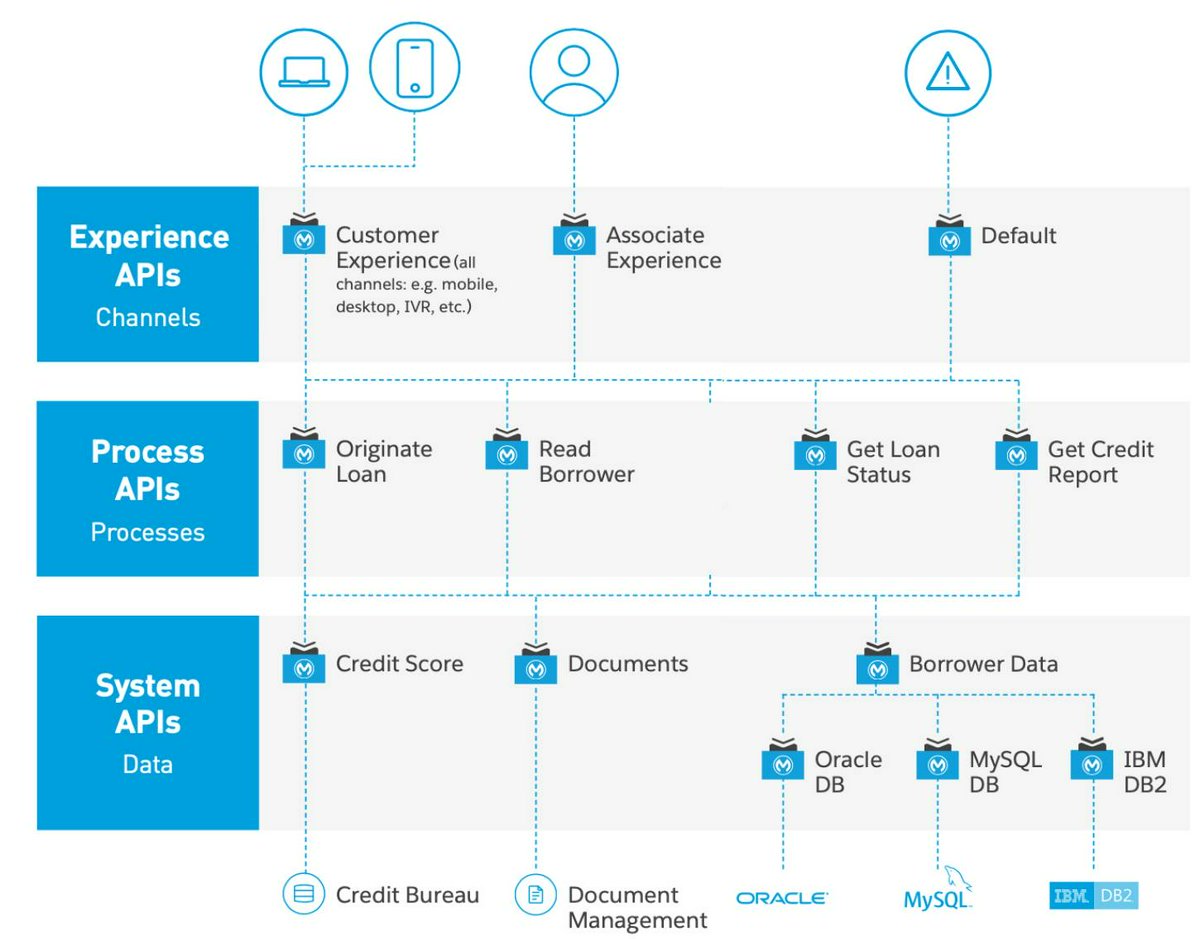 #2
#2
MuleSoft Anypoint Platform
By Salesforce
An integration platform (iPaaS) with strong API management capabilities, focusing on connecting applications, data, and devices.
Platforms & Use Cases
Platforms: Cloud, On-premise, Hybrid
Best For: Enterprise Integration, Application Networks, Legacy System Modernization, API-led Connectivity
Key Features
- ✓Unified Platform: Combines Integration (ESB, ETL) and API Management.
- ✓API Design & Development: RAML/OAS support, graphical design tools.
- ✓Policy Enforcement: Pre-built and custom policies for security and governance.
- ✓Monitoring & Analytics: Real-time visibility into API and integration performance.
Scorecard (Overall: 8.4 / 10.0)
Pricing
Free Trial
Contact Vendor
- Limited access for evaluation
Limitations: Time-bound
Gold
$9999.00 / Annually
- Core integration and API features
Limitations: Contact Sales
Platinum
$9999.00 / Annually
- Advanced capabilities
- Increased capacity
Limitations: Contact Sales
Titanium
$9999.00 / Annually
- Highest tier support and features
Limitations: Contact Sales
Pros
- + Strong integration capabilities
- + Unified platform approach
- + Wide range of connectors
- + Good for complex enterprise scenarios
Cons
- - Primarily an integration platform, API management is one part
- - Can be expensive
- - Complexity can be high
Verdict
"Best suited for organizations heavily invested in integration and looking for a unified platform for both APIs and broader connectivity."
View Top Ranked Software
Watch a short ad to unlock the details for the #1 ranked software.
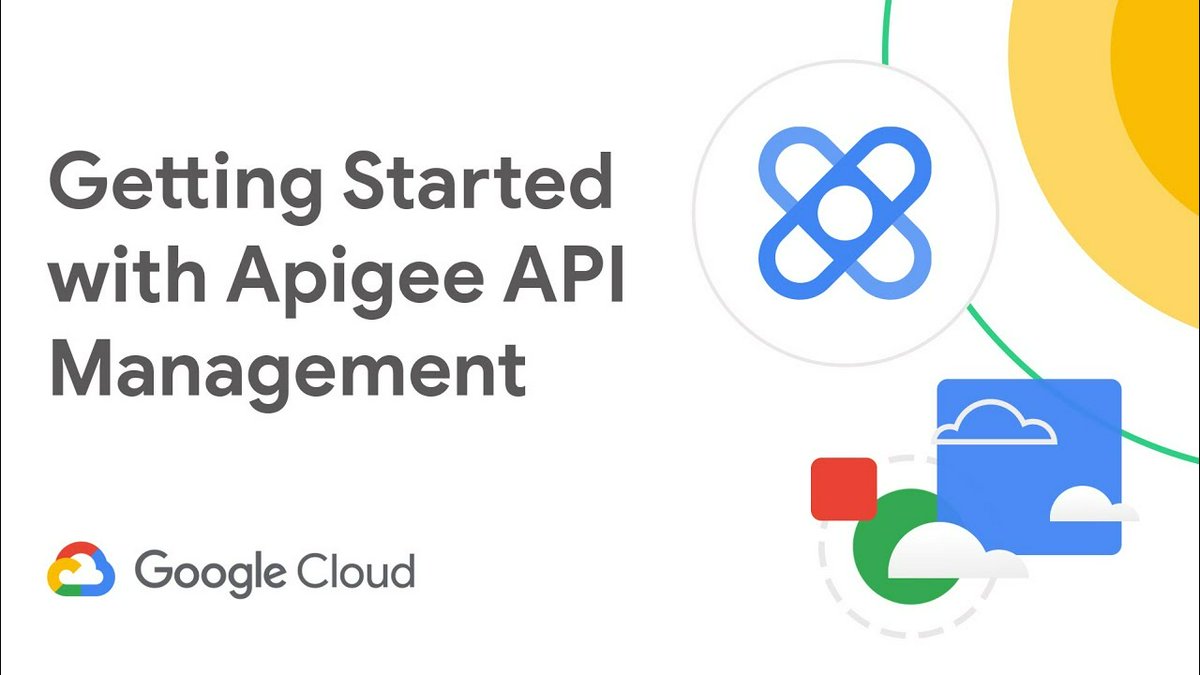 #1
#1
Google Apigee
By Google Cloud
A comprehensive, mature platform for developing, securing, deploying, and analyzing APIs.
Platforms & Use Cases
Platforms: Cloud, Hybrid, Multi-cloud
Best For: Large Enterprise Deployments, API Monetization, Digital Transformation, Security Enforcement
Key Features
- ✓API Lifecycle Management: End-to-end capabilities from design to deprecation.
- ✓Advanced Security: OAuth, SAML, threat protection, traffic management.
- ✓Developer Portal: Customizable portal for API discovery and onboarding.
- ✓Analytics & Monitoring: Deep insights into API usage, performance, and trends.
Scorecard (Overall: 8.9 / 10.0)
Pricing
Evaluation
Contact Vendor
- Limited usage for testing
Limitations: Time-bound, Feature restrictions
Standard
$500.00 / Monthly
- Core API management features
- Basic support
Enterprise
$2500.00 / Monthly
- Advanced security
- Analytics
- Monetization
- Standard support
Enterprise Plus
$9999.00 / Monthly
- Highest scale
- Premium support
- Hybrid deployment options
Limitations: Contact Sales for pricing
Pros
- + Comprehensive feature set
- + Strong security capabilities
- + Excellent analytics
- + Scalable architecture
Cons
- - Can be complex to manage
- - Higher cost compared to some alternatives
- - Steeper learning curve
Verdict
"Ideal for large enterprises needing a robust, feature-rich API management solution with strong analytics and security."

Final Thoughts
The API Management market offers diverse solutions, from comprehensive enterprise suites like Google Apigee and MuleSoft Anypoint, to cloud-native options like AWS API Gateway and Azure API Management, and flexible open-source platforms like Kong, Tyk, Gravitee.io, and WSO2. Postman excels in developer collaboration and testing, while IBM API Connect provides robust enterprise governance. Selection depends heavily on existing infrastructure, specific use cases (e.g., integration, microservices, event-driven), budget, and preference for open-source or vendor-managed solutions.